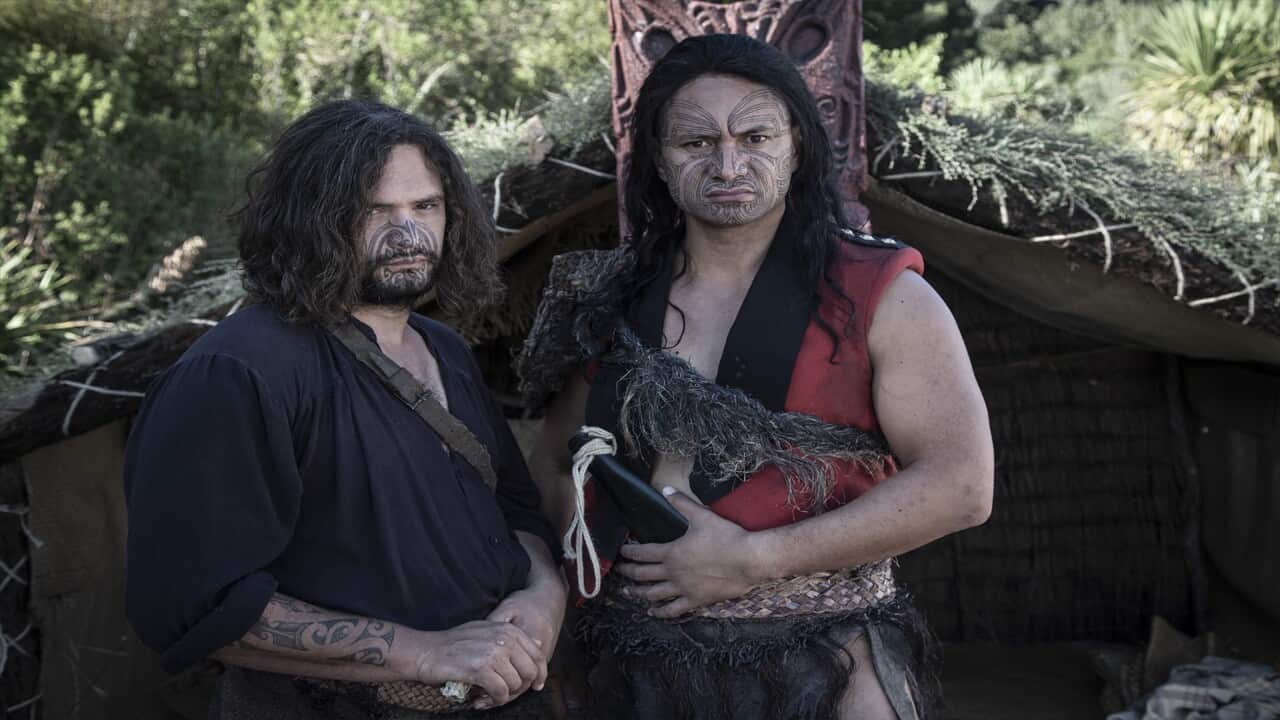“Sesame Street saw all the holes that existed, and they filled them,” says Whoopie Goldberg. “It was revolutionary.”
Sesame Street is not only an institution – one of the longest running series in TV history, and a profoundly influential force for children’s education, with “half a century of excellence behind it,” as John Oliver says – it also remains a relevant and engaging show for the whole family to this day. A new documentary, Sesame Street: 50 Years of Sunny Days, explores its history of making TV more educational, inclusive and even challenging for young audiences around the world, while still bringing the smiles and laughter.
A new documentary, Sesame Street: 50 Years of Sunny Days, explores its history of making TV more educational, inclusive and even challenging for young audiences around the world, while still bringing the smiles and laughter.

Whoopie Goldberg in ‘Sesame Street: 50 Years of Sunny Days’. Source: TIME Studios
Interviews with the show’s creators and puppeteers highlight the careful attention that goes into its educational mission, and its innovative model of incorporating research into writing and production. Celebrities including Angelina Jolie, Questlove, Gloria Estefan, W. Kamau Bell, Dr. Anthony Fauci and Rosie Perez talk about how much Sesame Street has meant to them.
Sesame Street was an unusually progressive presence on TV from its early days.
Author David Kamp says in the documentary that Sesame Street was “the Blackest show in the history of television when it began.” As Bell puts it, “I don’t remember another space on television with people who looked like me.” Clips show guest appearances from Black celebrities and public figures throughout the show’s history including James Earl Jones, Stevie Wonder and the Reverend Jesse Jackson, who leads a multicultural group of children in chanting “I am somebody.” The show also made representation of women a priority. This was especially embodied in the long tenure of Sonia Manzano, who played Maria on the show from 1971 to 2015. Wonderful footage from a 1970s episode depicts Maria going to work at a construction site, and standing up for herself against a Muppet foreman’s backwards ideas about women in the workforce.
The show also made representation of women a priority. This was especially embodied in the long tenure of Sonia Manzano, who played Maria on the show from 1971 to 2015. Wonderful footage from a 1970s episode depicts Maria going to work at a construction site, and standing up for herself against a Muppet foreman’s backwards ideas about women in the workforce.

Sonia Manzano played Maria on ‘Sesame Street’ for decades. Source: TIME Studios
Because Manzano is Puerto Rican, she was also key to establishing Sesame Street’s representation of immigrant and Spanish-speaking communities – and in the 1970s, there were very few positive images of those communities anywhere on TV. “Maria meant everything to me,” says Perez. Sesame Street’s commitment to representation has expanded in recent years, with a Mexican immigrant Muppet character named Rosita; a family of Black Muppets, the Walker family; and Julia, an autistic Muppet. Sesame Street’s creators have also recently made the show more explicit in addressing race, in order to avoid the pitfalls of the “colorblind” approach. In one clip, Elmo asks questions about why people are protesting during the Black Lives Matter movement of 2020.
Sesame Street’s creators have also recently made the show more explicit in addressing race, in order to avoid the pitfalls of the “colorblind” approach. In one clip, Elmo asks questions about why people are protesting during the Black Lives Matter movement of 2020.

Oscar the Grouch helped broach the topics of poverty and homelessness. Source: TIME Studios
Sesame Street has a long history of reaching children with difficult topics – such as the subtle commentary on poverty and homelessness implicit in the character of Oscar the Grouch. One of the doco’s best passages covers the 1983 episode that addressed the death of beloved character Mr. Hooper after actor Will Lee died. The wrenching scene in which Big Bird comes to terms with his friend’s death – shot in one take, with the actors visibly fighting tears – was a milestone in children’s TV.
The doco also covers the 2000 launch of Takalani Sesame, the South African edition of the show, one of many international co-productions that tailor its unique approach for children around the world. Takalani Sesame boldly took on the issue of the AIDS epidemic in Africa via the character of Kami, a young Muppet who is HIV-positive and an AIDS orphan. This created a storm of controversy in the conservative media, but Goldberg says, “I am convinced that Kami has saved lives.” Another moral panic ensued in 2018 when an ex-writer for the show declared that Bert and Ernie were always canonically gay. In recent episodes the show has also tackled opioid addiction, incarceration and COVID-19. Sesame Street has the power to start conversations about real-world crises because, as Goldberg says, “the thing about Muppets is nobody wants to yell at one.”
In recent episodes the show has also tackled opioid addiction, incarceration and COVID-19. Sesame Street has the power to start conversations about real-world crises because, as Goldberg says, “the thing about Muppets is nobody wants to yell at one.”

Filming during the pandemic. Source: TIME Studios
Sesame Street wouldn’t have run for so long on the strength of its progressive ideas if it wasn’t also so wonderfully entertaining and funny. This is especially thanks to the magic of the Muppets, who are warmth and fuzziness personified on screen. In the early days, the producers quickly realised Jim Henson’s creations were the most vital and appealing thing about the show for test audiences, and scrapped plans to film them separately from the human actors.
The various interviewees affirm the show’s unique charm: we learn that Oscar is Dr. Fauci’s favourite Muppet; that one of Questlove’s earliest memories is laughing out loud at Bert and Ernie; and that, like many of us, John Oliver still thinks of the Pointer Sisters’ famously funky counting song when he counts to 12.
It’s this warmth and humanism that has kept Sesame Street going while driving its mission – and that enlivens this fascinating look at its inner workings.
Sesame Street: 50 Years of Sunny Days is now streaming at SBS On Demand:
More from The Guide

A moving rescue mission: ‘Cher and The Loneliest Elephant’









